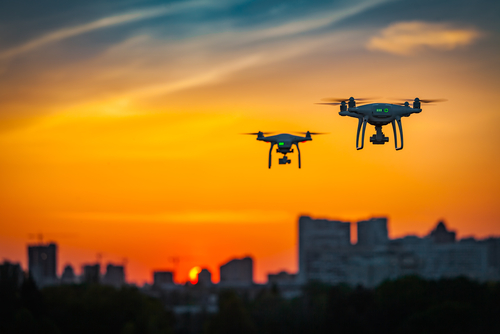
A new amendment from U.S. Sens. Marsha Blackburn (R-TN) and Mark Warner (D-VA) that would bar the Federal Aviation Administration (FAA) from providing federal funds to drones produced in certain foreign countries was added to an Appropriations Minibus package this week.
This amendment (1349) targets drones from China, Russia, Iran, North Korea, Venezuela and Cuba. Its inclusion in the Appropriations Minibus package to fund Military Construction/Veterans Affairs; Agriculture; Transportation, Housing and Urban Development; and agencies related also gives it significant weight as Congress considers its next steps.
The senators made a similar effort in June, when they introduced this as standalone legislation.
“Drones have tremendous potential to transform our society,” Warner said. “But we have a responsibility to ensure that as the adoption of this technology continues to grow, we are not advancing the goals of our adversaries. I’m thrilled to see this measure pass to ensure that taxpayer dollars are not being used to purchase or import products that go against U.S. interests.”
While this was not necessarily an issue to begin with, the amendment would give the force of law to a ban on funding to benefit drone companies from those specific countries, to those owned or subject to their influence or those included in the federal government’s consolidated screening list. Both the FAA and its contractors would likewise be banned from procuring or operating drones produced from the aforementioned nations.
“Taxpayer dollars should never fund drones manufactured in regions that are hostile toward our nation, including Communist China,” Blackburn said. “As the world rapidly becomes more technologically advanced, it’s vital that we protect critical U.S. sectors from the increasingly aggressive New Axis of Evil and their partners. My amendment will help curb the importation of drones produced by our adversaries, keeping our nation safer and encouraging manufacturing here at home.”
If passed, some exclusions to the bill would be allowed. Its text specifically noted cases where such funding would be used to detect or counter drone system surrogate testing and training, intelligence and electronic warfare, research to inform unmanned aircraft system data-driven policy decisions and more. Further, the Secretary of Transportation could certify that certain deals were needed for the public interest, on a case-by-case basis.




